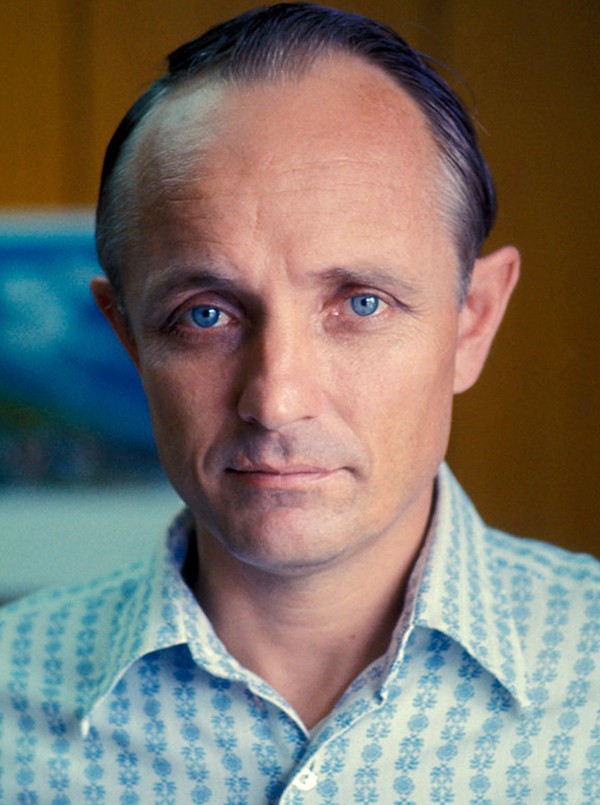Randy Barker, expert in Asian rice economics, dies at 92
By Krisy Gashler
Randy Barker ’53, an agricultural economist who spent half his career in Asia supporting food security and sustainable rice growing, died July 4 in Providence, Utah. He was 92.
An emeritus professor of applied economics and management, Barker was an international professor in the College of Agriculture and Life Sciences (CALS) from 1978-94 and served as director of the university’s Southeast Asia Program from 1989-94.
Barker was “both unassuming and intellectually engaging,” said Andrew Novaković, the E.V. Baker Professor Emeritus of Agricultural Economics. “He was also a very decent and caring fellow. He is a great example of what made Cornell so impactful in agriculture and agricultural economics in the mid-20th century: solid science and methods blended with real-world knowledge that together could make a difference in people’s lives.”
As a young assistant professor in 1966, Barker was asked to move with his family to Los Baños, the Philippines, as part of the Cornell-Los Baños project to assist the newly formed International Rice Research Institute (IRRI), which had been established to address concerns about food security in Asia. After his two-year assignment, Barker chose to continue working for IRRI for another decade. His time in the Philippines led to a lifetime of dedication to the people and agricultural systems of Asia.
Barker was part of the team that developed the longest-ever farm survey of planting and growing techniques. Roughly every five years from 1966 to 2012, the team surveyed about 100 farmers in Central Luzon on land preparation, water usage, fertilizer and pesticide applications, yields and incomes. The research resulted in the book, “Changes in Rice Farming in the Philippines: Insights From Five Decades of a Household-level Survey.”
In 1978, Barker returned to Cornell and continued his global work, serving as one of the college’s international professors and supporting many students in developing their own research abroad. In 1985, Barker published the groundbreaking work, “The Rice Economy of Asia,” a 40-year overview of agricultural, economic and equity issues around rice growing in Asia. Co-written with colleague Robert Herdt, a former professor of applied economics and management, the book is still in print.
In a 2013 interview, Barker cited interdisciplinary collaboration as key to his worldview.
“It’s so important to have opportunities for people to talk to each other across disciplines: It’s important for research, for capacity building and for developing new ideas,” he said.
Another former colleague, Ronnie Coffman, worked as a rice breeder at IRRI before also taking a position as a faculty member at Cornell.
“Randy Barker was the epitome of a transdisciplinary scientist,” said Coffman, international professor emeritus of plant breeding and genetics. “He reached out to me as a plant breeder as soon as I arrived at IRRI and continued to be in touch with me throughout his career. He had tremendous insight when it came to water, rice and rice farmers and helped me understand the many aspects of rain-fed rice during my early years as a rice breeder.”
Initially focused on increasing rice production, Barker’s interests expanded over time to prioritize food security along with environmental protection, poverty alleviation and water conservation. His research domain also expanded to encompass both Asia and Africa; for example, he served on the board of trustees of the International Institute of Tropical Agriculture in Nigeria from 1987-93.
After his retirement from Cornell in 1995, Barker worked for nine more years at the International Water Management Institute in Sri Lanka, where he headed the project “How to Grow More Rice With Less Water”; rice production uses one-third of global freshwater resources.
Barker was born Dec. 23, 1929 in Boston. After earning his bachelor’s degree from CALS, Barker completed his master’s at Oregon State University and his doctorate at Iowa State University. Barker was preceded in death by his wife, Virginia and a son, Ethan. He is survived by children Rand, Heidi, Shaun, Matt, Lydia and Kelly, and many grandchildren.
Krisy Gashler is a writer for the College of Agriculture and Life Sciences.
Media Contact
Get Cornell news delivered right to your inbox.
Subscribe

